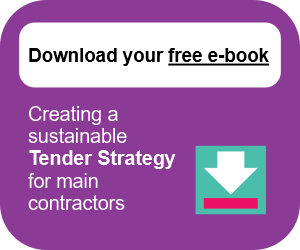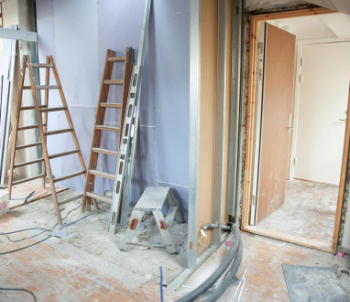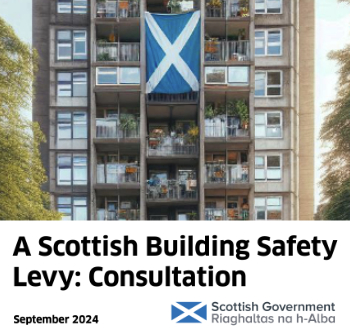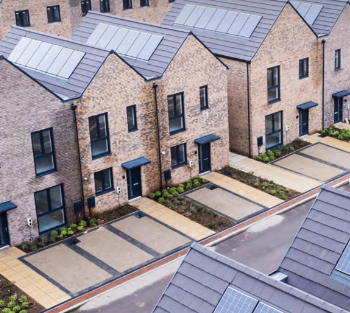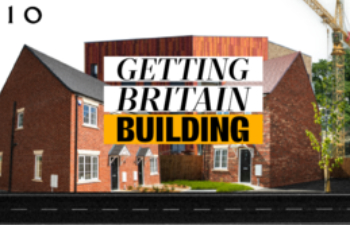Carbon assessments of buildings and targets could come within years
Contents |
[edit] Planning consultation launch for 2023
In a statement of intent to tackle emissions from the UK’s built environment, the Government appears willing to explore whole-life carbon assessments and ratcheting targets to reduce emissions. In 2023 Ministers will launch a consultation on implementing a proposal from the Environmental Audit Committee (EAC) which has the potential to address the source of 25% of the UK’s greenhouse gas emissions.
[edit] Response to Environmental Audit Committee report
The Government made the undertaking in its response to an EAC report which examined the sustainability of the built environment.
EAC considers that the new administration must now build on this momentum, acknowledging the urgency of clamping down on built environment emissions which was demonstrated in the Committee’s report. EAC considers that the Government’s timescales need to be more ambitious to meet carbon budgets and the Government’s net zero target. The Committee will press for the consultation to cover the mandating of whole-life carbon assessments through regulation and the planning system, and to propose progressively more ambitious carbon targets for the built environment that are consistent with climate commitments and carbon budgets. Crucially, the consultation must propose a clear and achievable timeline for introduction of mandatory whole-life carbon assessments.
EAC welcomes the Government’s intention to review the National Planning Policy Framework to ensure that it contributes as fully as possible to climate change mitigation and adaptation efforts. This review is also to consider the role of circular economy principles in the built environment to boost the recycling and reuse of materials, a significant Committee recommendation.
While the Government’s response engages thoughtfully with a number of EAC’s recommendations, members are concerned that the rejection of a recommendation to fast-track the introduction of the Future Homes Standard represents a missed opportunity. If brought forward, the Future Homes Standard would accelerate the construction of low carbon homes with increased energy efficiency, which would in turn lead to lower household bills for energy use.
[edit] Chair's comment
Environmental Audit Committee Chairman, Rt Hon Philip Dunne MP, said:
“The Government’s positive response to our Committee’s report represents a clear statement of intent to crack down on emissions from the built environment. Emissions from buildings – both in the fabric of building materials and the operating emissions – have been overlooked for too long, but it is a promising sign that Ministers now appear intent on taking action.
“Emissions in buildings span the responsibilities of multiple government departments. After years of pressure from this Committee, it appears that in this area departments are finally starting to demonstrate the joined-up working which is vital to get to net zero.
“But this progress must continue under the new administration. It is very welcome that the Prime Minister has already confirmed her Government is committed to net zero. Tackling emissions from our building stock must be a vital part in achieving this.
“I hope the new administration will reconsider fast-tracking the Future Homes Standard. Mandating energy efficient new-build homes will not only help the UK’s net zero ambitions, but will reduce the energy bills for their future occupants. The Government must be bold and act now on energy efficiency.”
EAC has written to the Secretary of State for Levelling Up, Housing and Communities reiterating the Committee’s findings detailed in its report, and making the case for action to address emissions associated with the built environment.
This article is quoted from the UK governments commitee report dated September 30 2002, follow this link to read the commitee report in full with links to the full report and related publications
[edit] Related articles on Designing Buildings
- Aligning net zero with the levelling-up agenda.
- Government net zero review 2022.
- Net zero strategy: build back greener
- Sustainability in building design and construction.
- The sustainability of construction works.
[edit] Further links
Inquiry: Sustainability of the built environment
Featured articles and news
Considerate Constructors Scheme acquires Building A Safer Future
Acquisition defines a new era for safety in construction.
AT Awards evening 2024; the winners and finalists
Recognising professionals with outstanding achievements.
Reactions to the Autumn Budget announcement
And key elements of the quoted budget to rebuild Britain.
Chancellor of the Exchequer delivers Budget
Repairing, fixing, rebuilding, protecting and strengthening.
Expectation management in building design
Interest, management, occupant satisfaction and the performance gap.
Connecting conservation research and practice with IHBC
State of the art heritage research & practice and guidance.
Innovative Silica Safety Toolkit
Receives funding boost in memory of construction visionary.
Gentle density and the current context of planning changes
How should designers deliver it now as it appears in NPPF.
Sustainable Futures. Redefining Retrofit for Net Zero Living
More speakers confirmed for BSRIA Briefing 2024.
Making the most of urban land: Brownfield Passports
Policy paper in brief with industry responses welcomed.
The boundaries and networks of the Magonsæte.
London Build Fire and Security Expo
20-21 Nov and now with new Ambassador Programme..
The Scottish Building Safety Levy
Eight weeks of consultation closing on 18 November.
The grey, the brown and the golden rules of housing
shifting policies from the wild west of housing development.
Future proofing homes that are fit for purpose
Specification challenges and the role of plastic.
Thousands of new homes unlocked for brownfield sites
£68 million to 54 councils for neglected land into new homes.







